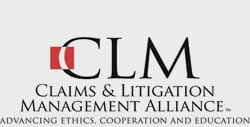Perhaps you have heard of declaratory judgment in regards to insurance claims in the past. While a seemingly confusing and complicated topic, your efforts to understand it better may make a considerable difference if you are ever involved in a disputed claim. At Fowler Bell, we have significant experience in working with insurance and are familiar with the unique challenges of the industry in Kentucky.
According to the American Bar Association, declaratory judgments can be filed by both an insurer and a policyholder. Discovering the facts of cases involving declaratory judgments is something you should do carefully after considering your situation and the circumstances that lead to it. Evidence you collect may be inapplicable if discovered in the wrong way. You may notice that many different parties are involved depending on the scenario. These may include the following:
- Excess insurers
- Successors-in-interest to the insureds
- Underlying claimants
- Agents or brokers
- Other insureds under the policy
- Other primary insurers
Timing is critical when you are dealing with a declaratory judgment. Courts use a variety of factors in determining whether or not a case of declaratory judgment is ripe enough to be considered before proceeding with legalities.
It is important for you to remember that many states have their own variations of the law when dealing with declaratory judgment cases. When you are familiar with basic facts about declaratory judgments, you may feel more confident going into a dispute. For more information about legal assistance regarding insurance coverage and defense, mediation, subrogation and other matters, visit our web page.













No Comments
Leave a comment